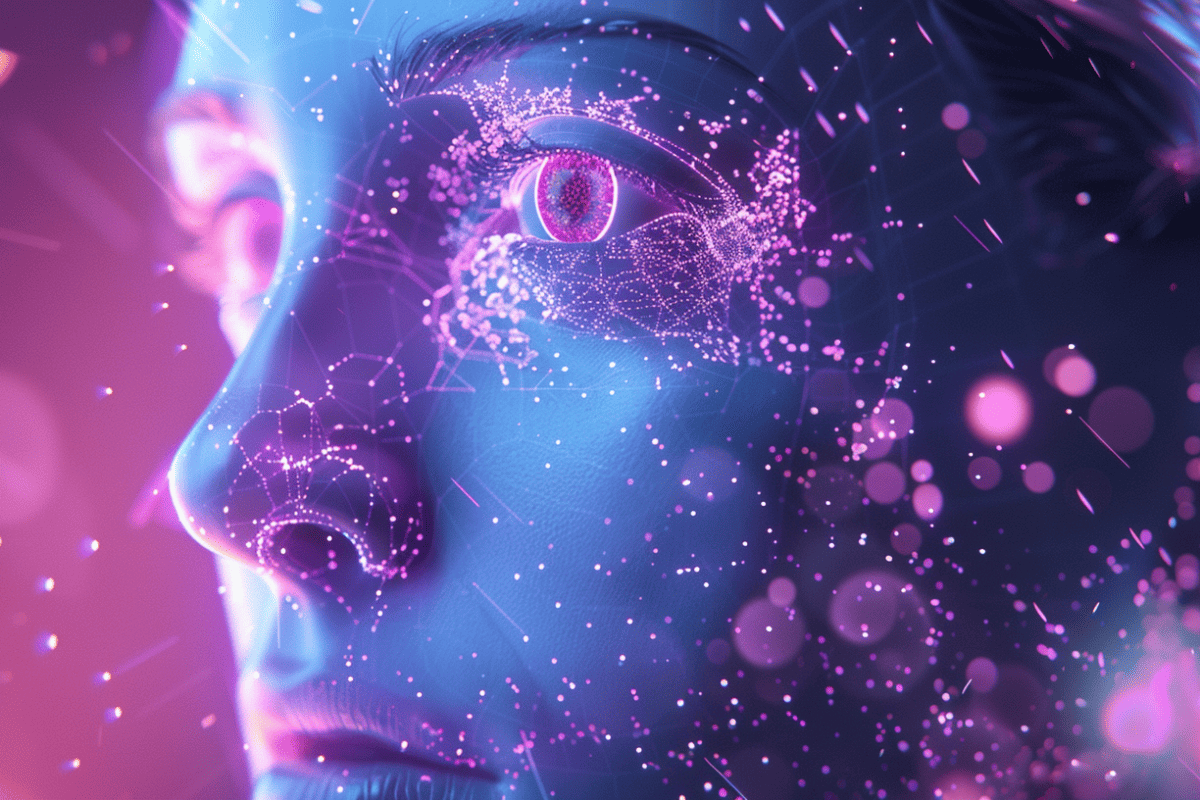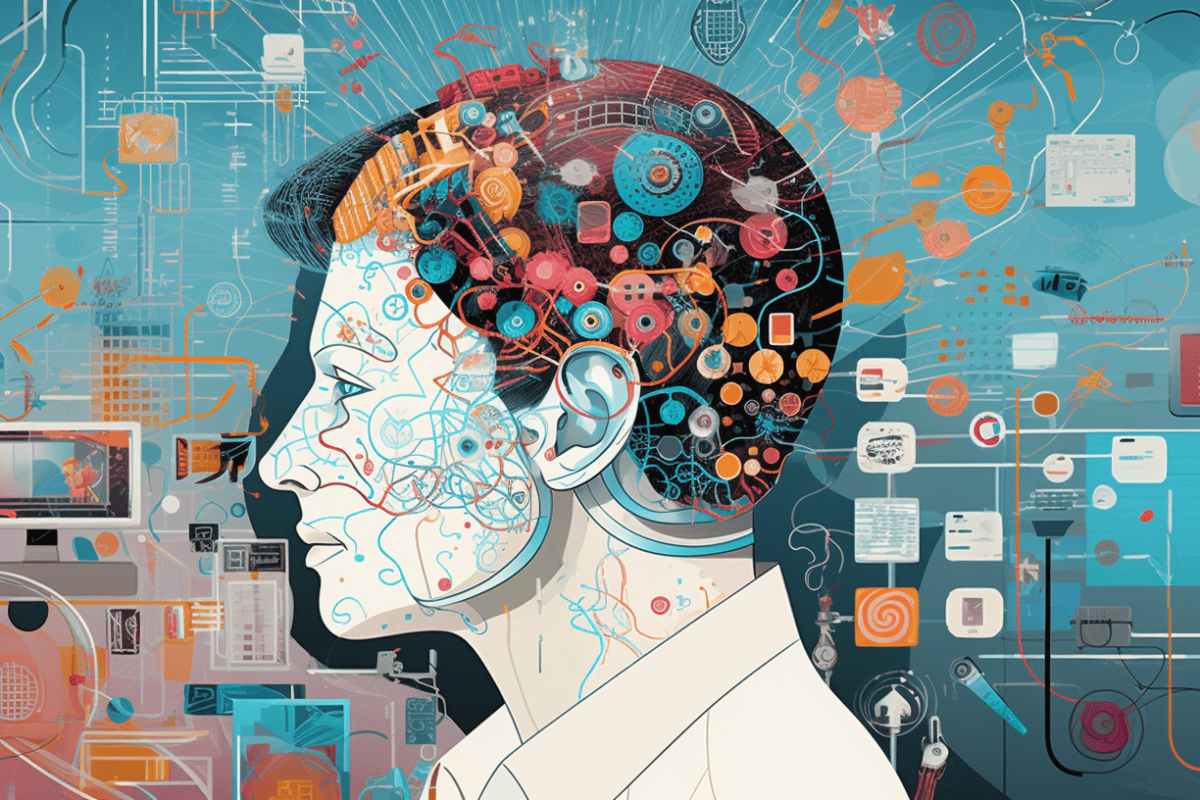With big data, healthcare institutions use artificial intelligence to aid medical decision-making. Artificial Intelligence is growing fast and is touching almost every industry somehow. In healthcare, there are a lot of real-world applications of AI. In fact, from the diagnosis of certain diseases to creating the next new wonder drug, AI has a role to play.
Let’s check out artificial intelligence and find out some real-life applications.
What Is Artificial Intelligence?
Artificial intelligence (AI) is a field of computer science that aims to create machines capable of intelligent behavior. It includes general intelligence across various tasks and specialized intelligence for specific tasks. These tasks include problem-solving, learning, planning, perception, and the ability to move and manipulate objects.
It requires many interdisciplinary skills. Such as knowledge of probability and algorithms, database access, communication skills, and creativity. AI is designed by using machine learning algorithms. Machine learning algorithms are capable of getting raw data and predict about the future. These algorithms are deployed by using machine learning models.
In the systems where you need real-time results, you need model monitoring. There is no one way to perform model monitoring. However, the overall process is closely related to the initial stages of machine learning. It begins with idea generation, model training, evaluation, and optimization. If those initial steps are done well, the monitoring will flow naturally.
Model monitoring is an ongoing process where machine learning models are evaluated on how well they are predicting outcomes. It is done to ensure that a model performs well and does not produce unexpected results. Additionally, monitoring determines if a model performs so poorly that it needs to be adjusted or even thrown away.
In healthcare, you closely need to monitor these models. Because if there is an error in them, it may risk the life of the patients. Let’s check out some real-world applications of machine learning in healthcare.
Applications of AI in HealthCare
Artificial intelligence has been introduced and integrated into our lives in many ways, from the days when robots were only the stuff of our fiction to the modern world where robots are living with us and helping us in our daily lives.
There are many benefits to integrating AI into the healthcare sector. It can help reduce the workload and make a healthcare provider’s life easier. AI also helps simplify the diagnostic process and can provide a provider with more information.
In addition to this, it can also help by reducing the no of false indications and providing a complete picture and analysis of the patient. It allows healthcare providers to decide on the patients’ health in a better way.
1. Data Management
The healthcare industry is not doing an excellent job at managing its data. Many large practices and hospitals are now harnessing artificial intelligence because they realize the limitations of traditional systems and the scope of their data.
AI is not a new concept, but the rise of machine learning techniques like deep neural networks has allowed artificial intelligence to have a more prominent role in patient data management.
AI can manage and extract real-time information in less time with more accuracy. It can store patients’ data for further evaluation. It can also aid in reducing the time needed to check the patient’s previous medical history.
While it’s easy to pass off what they’re doing as a buzzword, it’s important to remember that the rise of machine learning technology has changed the way we manage data. They are not just mindless tools anymore. They are capable of learning and adapting to their environment.
2. Virtual Nursing
A new technological innovation in the healthcare sector uses AI to allow patients to receive care from an online nurse. This nurse is more affordable than a human nurse. It makes it a feasible solution for many individuals who may not be able to afford conventional healthcare services.
Virtual nursing assistants can be much help to healthcare professionals and patients. First, the VNA can assist you in organizing your schedules to help your patients better. The VNA can also help you check patients’ breathing rates and provide better patient care overall. By assisting the patient in remembering to take their medicine, the VNA can save lives and ensure a better quality of life for patients.
3. Identifying Kidney Disease
It has been discovered that artificial intelligence can help detect early-stage kidney disease. The test can determine if a patient develops end-stage renal disease within the next ten years. It can be a lifesaving tool for millions of patients nationwide. We might be on the verge of a new technology that will revolutionize diagnosing diseases.
There are several ways artificial intelligence is utilized to help with this. It is being used to make the process more efficient, easier to use, and cheaper. There is a device that is used to identify kidney disease. The device is inserted into the patient’s wrist and is used to analyze the amount of blood flowing in the hand and test for protein levels.
Then, the results are analyzed by the AI-based program. It then reports back to the patient’s doctor. This device was created as an alternative to regular blood tests, which are invasive and painful. This device can work for years if properly managed and doesn’t require any new technology.
4. Surgery
Robotic surgery has recently grown enormously. Various institutions use robotics to help with jobs requiring accuracy, command, and versatility. It is utilized in positions beyond human capabilities, such as open-heart surgery.
Robots with prosthetic arms, cameras, and the necessary surgical tools supplement the physicians’ expertise, abilities, and practice, resulting in a new type of surgery. It enables physicians to operate the robot’s mechanical arms from a computer interface. At the same time, the robot provides an enlarged, three-dimensional picture of the surgery site that is difficult to see with their own eyes.
Surgeries aided by AI-implemented robots lead to fewer problems, lower discomfort for patients, and quicker recovery time.
Final Thoughts
AI is an interdisciplinary field – it brings the power of computing to bear on the problems other areas face. It has been confirmed in the era of mainframes, and it’s even more true today in the age of cloud computing and mobile devices.
AI has already profoundly impacted our lives: it underlies the voice recognition in our smartphones and the ranking systems that order our social media feeds. There are many ways that AI can improve healthcare.
It can take over the repetitive tasks that many doctors and nurses perform. It frees them up to focus on their patients. Alternatively, artificial intelligence can work with patients to ensure that they get the care and attention. It helps constantly improve healthcare, making it more streamlined and personalized.
This post has been sponsored by LinkDoctor
Digital Health Buzz!
Digital Health Buzz! aims to be the destination of choice when it comes to what’s happening in the digital health world. We are not about news and views, but informative articles and thoughts to apply in your business.


